Mind and Matter
The Curious Case of Dr.Sanna

A quiet afternoon. A peaceful view of the sea. The gentle purrs of a curious cat. This is the cozy haven of Dr. Sanna Balsari-Palsule, where she welcomed us with open arms into a calming space filled with nooks and corners brimming with art, books, music, and craft.
If you think psychology is all about heavy textbooks and serious lectures, then you haven’t met Dr. Sanna Balsari-Palsule! Sanna is a dynamic psychologist, professor, and storyteller is on a mission to make self-improvement not just relevant but downright joyful.
Raised across four continents, she now calls Mumbai home while serving as an Associate Professor at Golden Gate University and Ashoka University, with a PhD from the University of Cambridge. Her academic journey has taken her from the hallowed halls of Judge Business School, Cambridge, to vibrant classrooms where she inspires the next generation of thinkers.
But wait, there’s more! Sanna’s research has graced the pages of The Cut, The Atlantic, and even the BBC! She dives deep into topics like relationship compatibility myths and the essence of identity. And she doesn’t stop there; she’s crafted a trilogy of notebooks and a personality-based board game called “Who Are You?” When she’s not busy shaping minds or crafting insightful articles for Psychology Today, Fast Company, and Forbes, you might find her moonlighting as a model—yes, really!
In every endeavour, Sanna shows us that self-improvement can be an exciting journey filled with joy and discovery.
 Sanna wears our Orca day dress
Sanna wears our Orca day dress
JODI: You’ve lived across four continents— are you secretly a global spy, or just a really adventurous person? But jokes aside, how does ‘home’ feel to you now? Is it more of a place, a feeling, or something else entirely?
SANNA: Home has evolved for me over the years. It used to be very much the thrill of a place and the experiences that came with it. Now home is no longer tied to a location - it’s about where my people and community are.
JODI: From Cambridge to Mumbai, you've navigated so many different worlds. How does being a professor, a psychologist, a writer, and a model blend into your sense of self?
SANNA: It’s fascinating because as psychologists, we often emphasize the importance of having a unified sense of self. But I think many of us juggle different roles that aren’t always in harmony or that seem incompatible. I have always loved having these multiple parts of myself - at times it’s exhilarating, other times exhausting, but it feels authentic to me. Sanna wears our Viola handwoven denim co-ord set
Sanna wears our Viola handwoven denim co-ord set
JODI: So, what was the lightbulb moment that led to coming up with your science-based personality game “Who Are You? ”
SANNA:
During my doctoral research, I was struck by how complex and dynamic people are, and how personality tests can often be dull and limiting. That’s when the idea of combining self-discovery with a game hit me - it felt like a natural way to explore who we are in a playful, interactive way. I was lucky that my publisher loved the idea too.
Perhaps it’s not unexpected, but hosting game nights has reinforced that if you create a safe space and the structure to share, people will readily open up and connect. It’s been touching to see how quickly strangers will share personal stories or anecdotes.
JODI: Your work seems to be about debunking myths and figuring out the science behind why we behave the way we do. What’s a common myth about psychology that you wish more people understood or debunked?
SANNA: Good question! We’re unfortunately full of blindspots and biases. I’ll give you a couple. In relationships, psychology has long debunked the idea that ‘opposites attract’. While it sounds romantic, we actually are more likely to be attracted to people who are similar in values, interests, and beliefs. Another myth is that we can’t change our behaviour. We think that if you’re more of an introvert, then that’s who you’ll always be. We forget that behaviour is malleable and that we can even change our personalities. We just need the right tools.
JODI: Your research also touches on myths about compatibility in relationships. Is there a scientific "perfect match," or are we all just winging it?
SANNA: Oh, if only there was a scientific formula for love! But honestly, we are all winging it- and that’s part of the magic. Life is a lot more interesting without a checklist. The problem is that popular culture has sold us this idea of ‘true compatibility’. So when we’re on dating apps, we’re hunting for this mythical match but it’s all pretty abstract. My book is about challenging this idea, encouraging people to let go of the perfect compatibility ideal and to embrace the joy and growth that can come from incompatibility too.
JODI: Self-improvement is often framed as an arduous journey. How do you manage to make it joyful without losing its depth?
SANNA: That’s a great question. When I talk about making self-improvement joyful, there are two principles that we need to operate with- embracing curiosity and being self-compassionate. We often set ourselves these big goals that are difficult to achieve in reality. When we don’t see progress, we lose motivation. If you want to change something about yourself, start small. Set yourself targets and combine those targets with rewards. Don’t treat self-improvement as a burden but as an opportunity for growth. Celebrate small victories. Share those victories with someone you trust.
If we’re able to find meaning in the process of improving ourselves, it can be a powerful tool in our lives.
 Sanna wears our Rosella handwoven dress
Sanna wears our Rosella handwoven dress
JODI: Your trilogy of notebooks sounds like such an intriguing concept! How do these notebooks reflect the idea of self-discovery? Do you have a favourite prompt from the series?
SANNA: The goal with these notebooks was to blend functionality with self-discovery. I designed three different versions for three personality types: Dreamers, Dynamos, and Disrupters. Each notebook is filled with prompts tailored to these personalities: offering insights into your strengths—your superpowers—and also growth areas. We also tried to personalize the book design to personality, so the Dreamers have more blank space to draw while Dynamos have more space for their lists!
JODI: We couldn’t help but notice the beautiful art scattered throughout your home. Art has a unique way of sparking emotional and intellectual responses. Is there a particular artist or piece that resonates with you deeply, making you feel truly understood? What about it speaks to you?
SANNA: I don’t subscribe to a single aesthetic, but my home is more a reflection of the many influences from my travels. Growing up in Scandinavia, I’ve always loved to incorporate touches of Danish design alongside an antique teak table.
My favourite space is definitely my study. It has a beautiful rug that I brought back from Mexico, made by a women’s weaving cooperative in Teotitlan del Valle in Oaxaca that supports single, divorced, and widowed women. It also has two paintings, one from each of my parents and a cheerful little succulent.
 Corners of Sanna's home
Corners of Sanna's home
JODI: If your life had a soundtrack, what would be the opening track? And what song would close out the credits?
SANNA: The opening track would definitely be something a bit fun, goofy, and British- maybe Brimful of Asha? And then, to close it out, it would have to be something rousing like Florence and the Machine - maybe Spectrum or Never Let Me Go.
JODI: What’s your favourite part of Mumbai’s creative landscape—whether it's fashion, interiors, or street art? How has the city influenced your sense of creativity?
SANNA:
The sea. It’s what I love about Mumbai the most. I’m lucky enough to live near Chimbai Jetty in Bandra, where I can begin and end my day with a view of the ocean. There’s something magical about observing the subtle changes in the sea and her mood each day.
JODI: When you’re not busy changing lives, what’s your guilty pleasure?
SANNA: That’s easy! A midnight feast of toast with melted mature cheddar and a splash of Lea & Perrinsr. That or a classic jacket potato and baked beans (you can take a girl out of England but…)
JODI: What’s your go-to remedy for those moments when you need a mental reset? Is there a film/book/piece of art that feels like comfort food for your brain?
SANNA: I don’t have a go-to but recently, I found that Frances Ha by Greta Gerwig is such a relatable, comfort film. For books - I’m a sucker for classic romance novels - Far from the Madding Crowd and Persuasion, or anything heart-warming like Less by Andrew Sean Greer.
 Sanna wears our Rosella handwoven dress
Sanna wears our Rosella handwoven dress
JODI: If you could magically acquire a superpower overnight—be it cooking like a chef or dancing like nobody's watching—what would it be and why?
SANNA: Languages, without a doubt. I’d love to be able to speak all of them. So much is lost in translation, in communication, in social connection, in subtitles, and to bridge that gap would be incredible.
JODI: If you could host a dinner party with any three people living or dead, who would they be? And what’s the one burning question you'd want to ask them over dessert?
SANNA:
James Baldwin, Simone de Beauvoir, and Graham Norton (so he can ask the questions and I can sit back and enjoy my dessert!)
JODI: If your cat could spill the tea on your life together, what would the title of their memoir be?
SANNA: Tom & Jerry :)
 Sanna wears our Rosella handwoven dress
Sanna wears our Rosella handwoven dress JODI: As a writer for Psychology Today, what’s the latest book that made you go “Wow, I need to share this with everyone!”?
SANNA: That’s a tough one, but perhaps Three Women by Lisa Taddeo. I think it’s a useful read for men too.
JODI: With everything going on in the world right now, what do you think are some good ways for people to build healthier coping strategies for handling uncertainty?
SANNA: That’s a very pertinent question. We’ve always had a fear of the unknown. The unknown triggers our brain’s threat response and we go into fight or flight mode. Our cortisol and adrenaline spike. However, as we’re now dealing with protracted periods of turbulence and uncertainty, those stress hormones are just constantly on.
One way to handle uncertainty that works for a lot of people is to anchor yourself to a routine. Whether it’s a physical activity or a morning and evening ritual, sticking to a daily schedule can provide a sense of stability. For other people, a coping strategy is practicing more mindfulness, and being as present as possible. For some, it’s to plan. Planning is a good distraction.
These coping strategies can vary from individual to individual so it’s important to find one that works for you.
JODI: And lastly, what’s your favourite JODI outfit you’ve worn?SANNA: I loved the double denim co-ord! I’ve been a fan of the Canadian Tuxedo ever since Justin and Britney.
 Sanna wears our Orca day dress
Sanna wears our Orca day dress
Photographer: Anurupa Praharaj

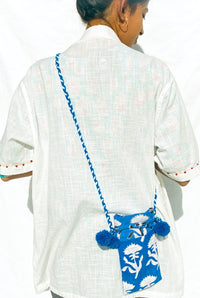

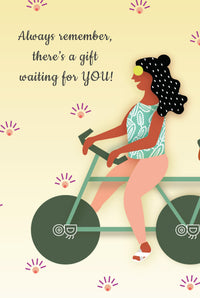
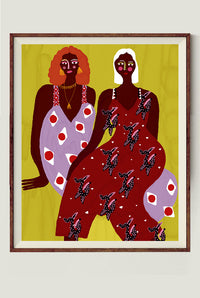
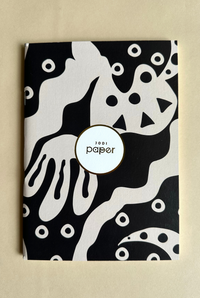
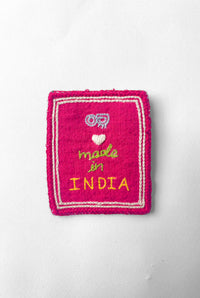


 Sanna wears our
Sanna wears our